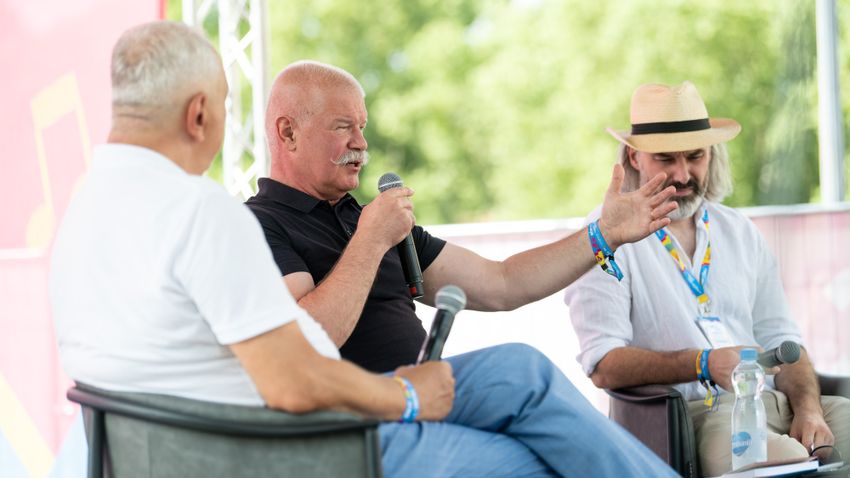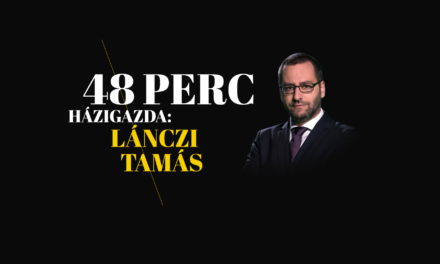How did our world become so empty that we expect the answers to the questions of the humanities from the sciences?
János Csák, the minister responsible for culture, and Calum TM Nicholson, a British researcher, discussed the future of science at the MCC Feszten. Balázs Mezei assumed the role of moderator.
János Csák started by declaring: science and research are integral parts of knowledge. The first task of knowledge is to help humanity survive. Anything that helps with that is important knowledge. Then the question arises as to whether
how to reduce the three fundamentally bad things in life: hunger, violence and general human suffering.
According to the minister, the next question is how to help human well-being, improve the quality of life, and increase togetherness. We must see the complexity of the world and find our place under the Sun. Moreover, we need to learn not only to find, but also to organize our lives.
Science means limited, practical knowledge, systematic research, the goal of which is to understand nature. This is different from the knowledge you can get from books.
In the humanities, we cannot do the same experiments as in physics. Man is an irrational, emotional being, so experiments cannot be repeated. When we talk about humanities, we rely on authorities. For people who can tell what, according to their experience and knowledge, is good in the sense of survival, knowledge and organization of the world, argued Csák.
But knowledge is an even broader thing. We can get knowledge from art, philosophy, politics, but also from religion. In ancient Greece, political philosophy influenced our thinking, and during the Renaissance, it was art that has now been replaced by science. In Europe we got rid of Christianity, art is confused, there is no political philosophy, and science itself claims to give us the answers. And that's wrong.
Science does not provide the answer to what is human good.
Nicholson added to all this that in the Anglo-Saxon world science and the humanities are separated. The purpose of science is to research the physical and chemical unity, while the humanities research a complex thing, people. One person thinks something is beautiful, another thinks it's ugly. The great danger now in science is not that the two are not coordinated, but that both use the same method.
Science cannot be a method for determining our morality, only the facts.
Mandarin
Featured image: MCC












